 Does the thought of talking to your spouse about explanting give you sweaty palms? You’re not alone, sister.
Does the thought of talking to your spouse about explanting give you sweaty palms? You’re not alone, sister.
Making the decision to remove your breast implants is a tough one. Let alone knowing you’re going to have to sit down and tell your spouse what you’re about to do. You wouldn’t be alone if you wondered…
Will money be an issue?
What if he tries to convince me it’s not my implants making me sick?
Will he be unsupportive and tell me I’m making the wrong decision?
What if he’s supportive at first, but then later on down the road discovers he isn’t attracted to me anymore and leaves?
These are totally normal thoughts for you to have before the big talk.
When I first heard about Breast Implant Illness and started learning all about it, I made sure to show my husband just about everything I was discovering.
For me it was about validation.
It was about me showing my hubby that there are thousands of women just like me who have explanted and got better shortly after.
“See, I’m not crazy!”
John and I have been together since 2010, so he has seen firsthand how shitty (to say the least) I’ve been feeling for the last four years.
But at the end of the day, he just wanted me back.
The energetic, funny, fun to be around version of me.
Not the low vibe, never wanting to go anywhere or do anything, anxiety-filled, foggy brained, ‘always complaining about something’ version of me.
And to be clear and blunt…
ULTIMATELY, this is your decision – you know what is best for your body and health.
If your spouse knows how sick you’ve been over the years, I hope he’d be supportive of your decision to explant and want what’s best for you.
If he’s not supportive, shame on him. That’s all I’ll say about that — for now (blog post coming soon).
Then again, if you’ve only been with him for a couple of months or years and you’ve been hiding your illness well, he probably has no clue as to how bad you feel, which isn’t his fault.
Communication is everything.
This is an amazing article about clean communication. I highly recommend reading it before you sit down with your husband, if you think he’s not going to take this decision well.
Here’s the thing, chances are your spouse isn’t the one scrolling through the internet trying to figure out what’s wrong with you. Am I right? Let alone feverishly reading through tens of thousands of stories in these Facebook Groups about women who explanted and got their life back. You are.
It’s up to you to bring him into your world and show him what you’ve been discovering.
Men need to be educated on Breast Implant Illness and the explanting process, too.
The more they know, the more comfortable they’ll feel about this entire process — and that starts with YOU communicating, and understanding some of the potential thoughts and emotions he might experience in the process of that communication.
Let him know you’re not asking for permission, you’re asking for support. 💗
And remember… it’s not only a big change for you, it’s going to be a big change for him too.
This is a big change, and it will take understanding, patience and communication from both sides.
If you’re on Facebook join my community, Breast Implant Illness Rejuvenation And Education With Christina
Not on Facebook? Find me on Instagram!
here’s to newfound health, rejuvenation and massive self-love,
❤︎ Christina Dennis

 Being heavily involved in the Breast implant Illness community, I hear all sorts of worries and concerns daily. The most common ones are:
Being heavily involved in the Breast implant Illness community, I hear all sorts of worries and concerns daily. The most common ones are: Deciding to explant can be a nerve wrecking decision, to say the least. Anxiety, anxiousness and fear get the best of us.
Deciding to explant can be a nerve wrecking decision, to say the least. Anxiety, anxiousness and fear get the best of us. It’s been eight weeks since I removed my 12 year old 420cc silicone breast implants.
It’s been eight weeks since I removed my 12 year old 420cc silicone breast implants.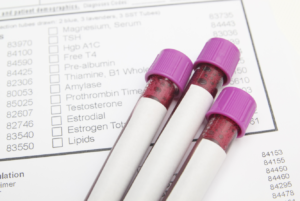 Why is it that some women get ill from their breast implants, while others can have them 10+ years and only have one to two symptoms?
Why is it that some women get ill from their breast implants, while others can have them 10+ years and only have one to two symptoms?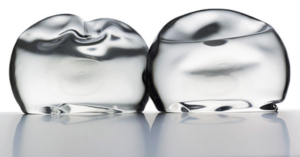 Patient: “I want to remove my breast implants, I think they’re making me ill.“
Patient: “I want to remove my breast implants, I think they’re making me ill.“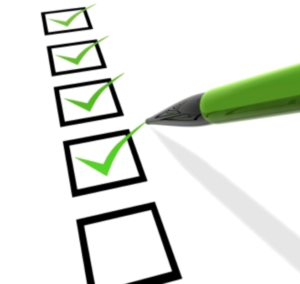 I polled
I polled I don’t know about you, but something I need (especially when I’m doing something like having surgery) is peace of mind.
I don’t know about you, but something I need (especially when I’m doing something like having surgery) is peace of mind.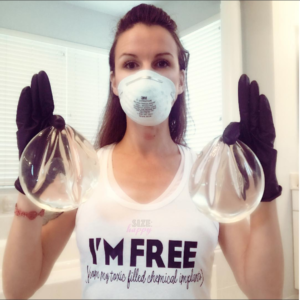 Regardless if you have silicone or saline breast implants, it’s actually the shell that is full of toxic chemicals – not just what’s inside.
Regardless if you have silicone or saline breast implants, it’s actually the shell that is full of toxic chemicals – not just what’s inside.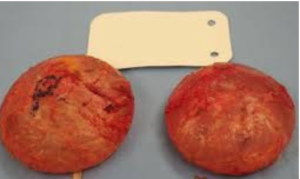 En Bloc: all together or all at the same time.
En Bloc: all together or all at the same time.